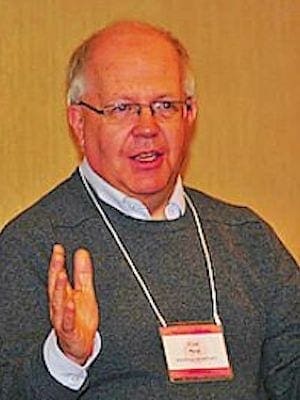It has been hard to watch again an escalation of the ongoing tragedy which is Gaza.
One of the three Christian churches in Gaza is a Baptist church and a member of the Evangelical Council of Local Baptist Churches in the Holy Land, which is itself a member of the European Baptist Federation.
Christians in Gaza find themselves squeezed between the policies of the Israeli government, which means that Gaza is virtually a huge “prison” for its Palestinian inhabitants, and the activities of Muslim extremists, which resulted in the murder of one of the church elders just a few years ago.
And yet, amid all this, the Gaza Baptist Church continues to worship and witness. They run a primary school and have a remarkable humanitarian aid ministry to all who need it – of whatever faith.
At times like this, they need our support and our prayers as they seek to remain faithful to Christ and to reach out to others in his name.
I have visited Israel and the West Bank on five occasions – though never Gaza. After each visit I have reflected long and deeply on the Israeli-Palestinian conflict which, with the building of the wall that fences in the West Bank, seems more intractable than ever.
I have listened to the radically different perspectives from both sides about the causes and what should be done. I have made many good friends among Palestinian Christians and met some Messianic Jewish believers.
One thing I have observed is that while one party to this conflict holds all the power, both sides live in fear and will continue to do so until there is a peaceful resolution.
You sense this from the moment you land in Tel Aviv airport, and you see it in the eyes of the young Israeli men and women guarding the checkpoints.
You hear of the bleak outlook for Palestinian young people in towns such as Bethlehem, and without a hope and a purpose for the future it is easy to see why some of them turn to violence.
Out of my reflections, here are two that keep coming back to me.
The first is that we need to challenge the Christian Zionism as expressed among some Baptists and evangelicals in parts of the United States and the EBF Region.
I have come to the view that a Zionist interpretation of selected parts of the Bible does not do justice to the whole counsel of the Word of God as expressed in both Old and New Testaments, and is actually damaging to a consideration of any kind of peaceful solution.
The second, and more positive, reflection is that among both Israelis and Palestinians and their supporters around the world, there are the people of peace who condemn violence, whether it originates from Hamas or the Israeli government.
At the EBF Council last year, we were moved to hear of the work of Musalaha, which brings together Palestinian evangelicals and Messianic Jewish believers.
They have a shared commitment to the peace found at the Cross of Christ as expressed in Ephesians 2.
In that context, they explore their differences honestly and openly and put a lot of emphasis on their young people coming together to spend time with each other to learn from each other and hopefully build a better future out of their shared commitment to Christ.
And then in my newspaper today is an open letter from some Jews living in Britain drawing attention to the plight of the Palestinians living in Gaza and urging Hamas and especially the Israeli government to show restraint.
I know that there are many groups in Israel itself that actively work for a lasting peace.
Jesus urged his disciples to seek out such “people of peace” in any situation. This is surely what we Baptists need to do; to work with others to show a biblically rooted passion for peace with justice between Israelis and Palestinians.
And then to pray the prayer of a Palestinian Christian:
Pray not for Arab or Jew,
for Palestinian or Israeli,
but pray rather for ourselves, that we might not
divide them in our prayers
but keep them both together
in our hearts.
Tony Peck is general secretary of the European Baptist Federation. This column is adapted from his blog, Europe Matters.

